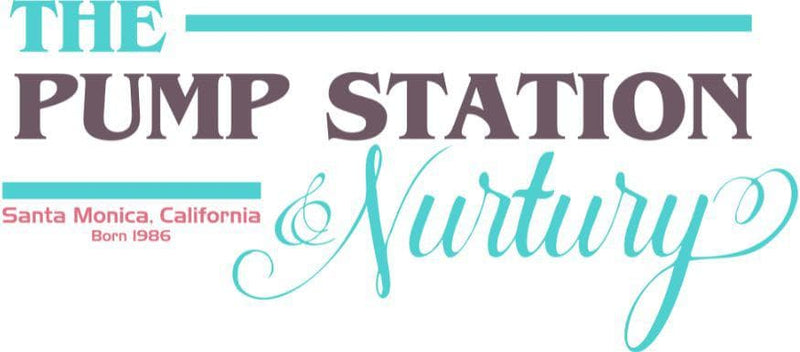Is a Plant-Based or Vegan Diet Safe While Breastfeeding?

Wander the isles at any supermarket and you’ll find an increasing number of plant-based (or vegan) options. Plant-based eating is on the rise, and while a plant-based diet is considered by many experts to be safe and healthy, breastfeeding parents might ask, “Is it safe to eat a completely plant-based diet while breastfeeding?” The answer may surprise you!
Why do people make the switch to a plant-based diet? The number of people in the US who identify as vegan has increased 19% since 2002, and supermarkets have reported a 65% increase in demand for plant-based products. People who identify as female are far more likely than males to be vegetarian or vegan, and people who make the switch to a plant-based diet cite that they are doing so because of ethical, environmental and health reasons. Factory farming and concern for animal welfare, the environmental toll meat production causes, and perceived health outcomes for making the shift are among the most common reasons cited.
Vegan VS. plant-based. A vegan does not consume or use any animal products at all to avoid cruelty to animals. Vegans don’t eat honey or gelatin, don’t use beeswax, avoid wearing wool, down and leather, and they carefully read labels to avoid animal-based ingredients in personal care products. Plant-based eating includes mostly foods derived from plants in the pursuit of better health outcomes or for environmental reasons. If someone is plant-based, they may still wear leather and wool and won’t necessarily avoid animal products in toiletries or supplements.
Is a plant-based diet safe while breastfeeding?
Not surprisingly the answer is more nuanced than a simple yes or no. What matters most, according to nutritional research comparing the human milk (breastmilk) of plant based vs. omnivore people, is the long-term nutritional status of the breastfeeding person. Have they been carefully planning their diet to include all of the necessary nutrients to support both themself and their growing baby? Are they currently taking the recommended supplements for people eating a plant-based diet, and if so, for how long? In short, what is their long-term nutritional status?
Breastfeeding Vegans Must Take Supplemental B12 and DHA.
B12 is essential for the neurological development of babies both in utero and as newborns. It is also important for the formation of DNA. Deficiency can lead to neurological damage and irreversible cognitive impairment. Omnivores rely on animal products for B12, and plant-based foods contain no B12 unless they are fortified (like fortified nut mylks and cereals). Amazingly, B12 is not produced by the animal being consumed, but by anaerobic microorganisms found in the soil upon which animals graze. Because of factory farming, many animals are no longer able to graze, so their food is fortified with supplemental B12. B12 is stored in the animal’s tissues, which is then consumed by humans. Vegans can just cut out the “middle-cow” and take a B12 supplement or regularly include fortified foods like plant mylks, cereals and plant-based meat substitutes. The National Institute of Health recommends breastfeeding people take 2.8 micrograms per day. Most supplemental B12 has several times that dose, so taking it a few times per week is all that’s needed.
DHA is essential for a developing immune system and formation of eyes and nerves found in the brain. Needs increase while pregnant and breastfeeding, and while foods like Chia seeds, ground flax seeds, soy beans, and walnuts are high in omega 3 fatty acids, the conversion of these foods to DHA in the body is inadequate. Because of the increased need for DHA during pregnancy and breastfeeding, vegans are at an increased risk for deficiency. Taking a plant- based DHA supplement (made from Algal Oil) is recommended. Although 100-200 mg of DHA per day is usually recommended, emerging research suggests that a significantly higher dose of 1000mg is better.
Other nutrients to consider as a plant-based breastfeeder.
Iodine: Important for thyroid development and function, Iodine is usually found in eggs, dairy and animal based seafood.. Most experts recommend against relying on seaweed as the main source of plant-based iodine as the dose is difficult to control and too much or too little iodine can have a negative effect on thyroid function. If you are plant-based, the easiest way to obtain iodine is by regularly consuming iodized salt. Many people have moved away from using iodized salt in their homes in favor of sea salt, which contains no iodine. The CDC recommends 290 mg per day for bf mothers-a teaspoon of salt contains 250 mg.
Iron: Iron needs during pregnancy and breastfeeding increase significantly! Regardless of diet, all pregnant and breastfeeding people are at risk for iron deficiency. During pregnancy, iron levels are extremely important because this is when a developing baby stores all the iron they’ll need for the first 6 months of life! Plant-based foods are very high in non-heme iron and while there is some controversy surrounding the need for heme vs non heme iron (non heme is less bioavailable), it is thought that vegans can obtain what they need through diet. Adding a food high in vitamin c to an iron rich food can increase absorption (ex. spinach with a squeeze of lemon).
Other nutrients of concern
Calcium, zinc, folic acid, protein: Plants are rich in these nutrients. Be sure to eat a well- balanced diet high in healthy fats, whole carbohydrates and plant-based protein and ensure increased intake of calories by 350-500 per day.
(*While the term “breastfeeding” is used here, we honor and acknowledge that not all people who birth babies and choose human milk feeding use the gendered term “mother” or have “breasts”.
The information contained in this post is not a substitute for sound medical advice. Please talk to your doctor or a registered dietician with any specific questions about the safety of a plant-based diet while breastfeeding)
By Allison Mahurin RN, IBCLC
